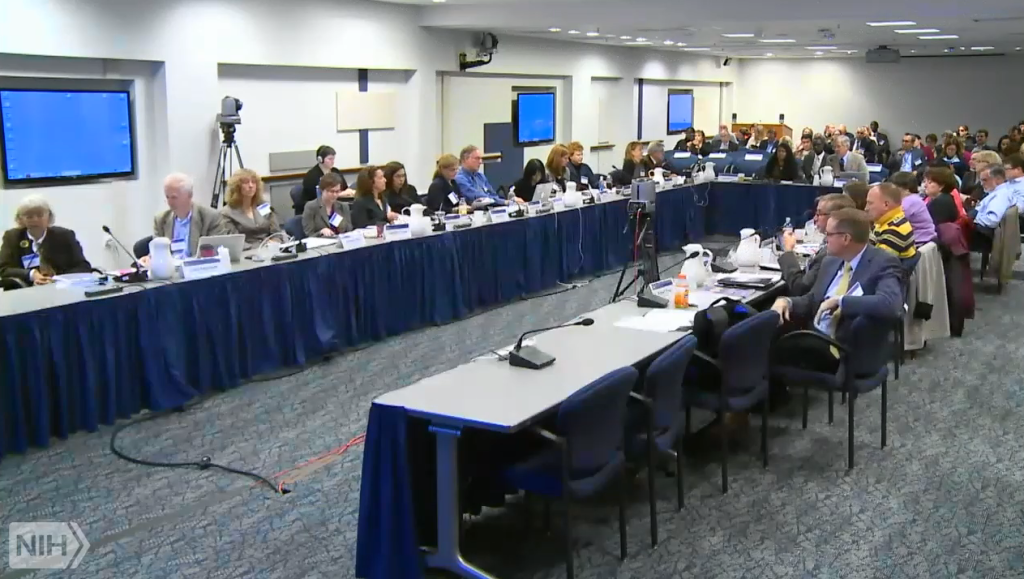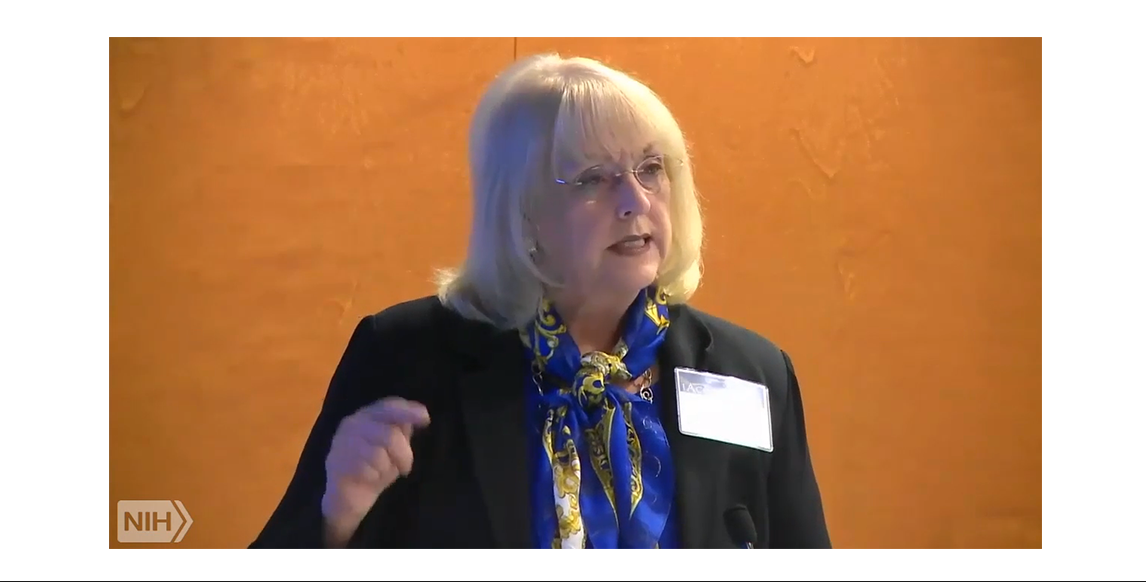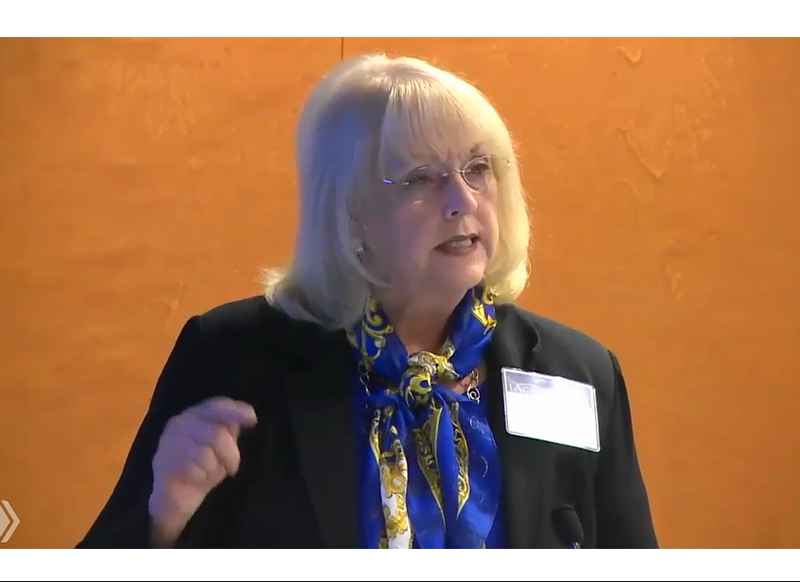Last month, Madison House Autism Foundation President, JaLynn Prince, addressed the Interagency Autism Coordinating Committee (IACC), the federal advisory committee that coordinates all efforts within the Department of Health and Human Services (HHS) concerning autism spectrum disorders. Mrs. Prince’s speech declares the urgency of services for adults on the autism spectrum in areas of housing, healthcare, education, and employment while also highlighting the need for more formal research and better policies. Her speech is transcribed below or watch the video here (begins at 3:14:30).
Good afternoon. I am the mother of a son, who is 26, on the autism spectrum … I am here on behalf of Madison House Autism Foundation. We would like to welcome you here as the new IACC board. If you are as stellar as your biographies purport, this board will accomplish many great things. Madison House Autism Foundation is one of the few national organizations working solely on the issues of adults on the autism spectrum. We are taking a comprehensive look at the issues facing adults from graduation throughout the lifespan. We have supporters and partnerships: over 150 organizations across the country, several universities, and colleagues. Our activities and conversations focus on housing, employment, healthcare, education for those on the spectrum, and education of providers in concerns facing individuals as they navigate through the community. We hope that you will take an active role in making certain that this population receives the attention that it deserves.
Historically, a very small portion of any federal funding has been allocated to increase knowledge about this population. Only about 4% of primary research publications on autism have addressed lifespan issues … whereas today’s autistic children are rapidly becoming today’s autistic adults. As Dr. Wexler pointed out, with the 478,983 [autistic] schoolchildren that are well on their way along with those adults that are living today, there are many concerns for parents and individuals [including] the lack of services and what is happening to individuals after high school. We are looking at [issues such as] employment, structure, and the continuity of physical and mental wellbeing. Many families have a difficult time navigating these services in housing, employment, and medical care – when and if these services are available.
Many parents are aging, and currently, public policy is leaning heavily towards individuals [on the spectrum] aging in place in the parental home. We hear about parents everyday in their seventies, eighties, and, yes, in their nineties contending with the physical and mental stress of being the sole support for community engagement and all other activities for their adult child. We hear numerous stories about autistic adults [who are] unemployed, yet they have skills that could be highly valuable for employers. According to A.J. Drexel Autism Institute, young adults with autism have higher unemployment rates and higher rates of complete social isolation than other people with disabilities.
Families face restrictions in not being able to move across state lines and maintain needed support for their adult children. Parents may travel to locations to secure employment, but they may be unable to return to their home state because services and funding will be lost. They may not be able to secure funding near family, or they may be placed on waiting lists decades long. Natural supports of families with aunts, uncles, grandparents are sacrificed for services, unintentionally forcing many autistic adults into living in isolation.
As all people, when autistic adults age, they have typical medical issues. Few physicians and healthcare professionals have the knowledge or feel comfortable in treating autistic patients for typical medical issues. We need to make sure that our physicians and other healthcare professionals are capable and willing to treat our population and that physicians are not penalized financially when they need to give our adults adequate office time. We need to make certain that universities can make appropriate accommodations when our population becomes part of their student bodies. We also know success looks different for all individuals, and the definition of success has been poorly clarified for our population.
As you see, there is a lengthy list of issues facing our adults, and I could elaborate on a whole lot more. The name of this organization is the Interagency Autism Coordinating Committee, and I hope that you take that name seriously as you call into play the agencies across our government that can help make a difference in the lives of thousands of families across the country. This is a large and complicated situation. And, with cooperation in many arenas, we can ensure that the talents and abilities of this population can be realized. And, those needing greater support services can access [them] without stressing families who are already stressed. In fact, some of these families may have one, two, or three individuals on the spectrum. As we solve these problems, as was alluded to earlier, we also may be helping other populations as well. We call for greater action on behalf of the adult population of adults on the autism spectrum.
Autistic children become autistic adults. Individuals and families need and deserve great minds and talents making the process of living with autism more positive. And, as a personal note, in arriving here today, I looked at the large, black building over here on the corner, and I recalled a meeting that I was in. It is the former FDA building, and my husband’s scientific work had resulted in the approval of a new drug, Synagis. It prevents a pediatric disease called RSV. The meeting came three years after it could have been approved, but it had been held up for unclear reasons. 16 years ago, it was approved, and it has for generations remained the gold standard. As a parent, I have often wondered about how many children and families could have been helped during that three-year period … That three-year interim … Avoiding a lot of sickness, a lot of heartache, and a lot of family stress. Treatment delayed is treatment denied. Can we also say that services delayed are services denied?
Please don’t delay in looking deeply into the lifespan of adults on the autism spectrum. We cannot afford to wait years to take action. Point [number one] on your list is ‘a sense of urgency.’ Madison House is here to be of any assistance that our 10 years in the field can offer. Together, we can formulate a new and better future for adults on the autism spectrum. Thank you and best wishes.

Interagency Autism Coordinating Committee Meeting, National Institutes of Health, November 17, 2015



 “Creating Inclusion” Exhibition Highlights the Works of Artists with Disabilities
“Creating Inclusion” Exhibition Highlights the Works of Artists with Disabilities



Ask why are there no law abiding warning labels on these fluctuating levels of endocrine disrupters, phytic acid that block necessary minerals, essential enzyme inhibitors, nitrites and more toxins all rolled up into one toxic cocktail fed to healthy American babies for the long term without any evidence of safety and without public disclosure! Here is adulteration and misbranding at its worste in all history.. Here describes Soy infant formulas! It is long past due to finally disclose the toxic soy truth and stop prioritizing industry profits!